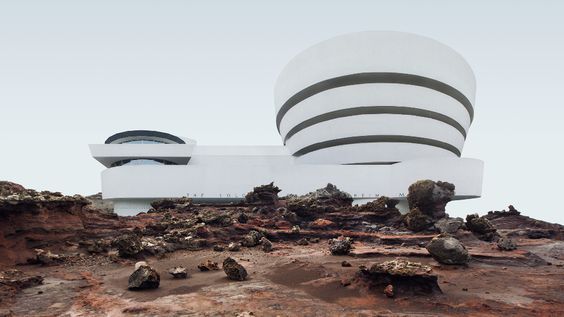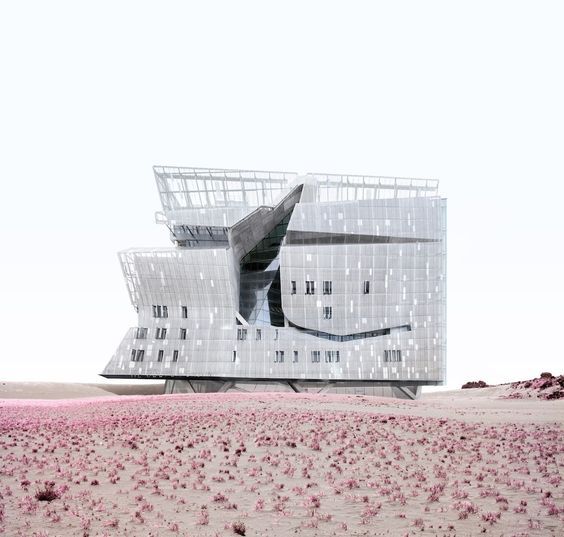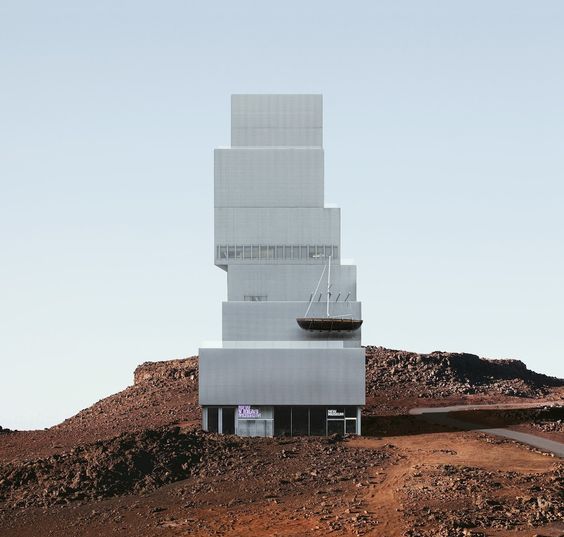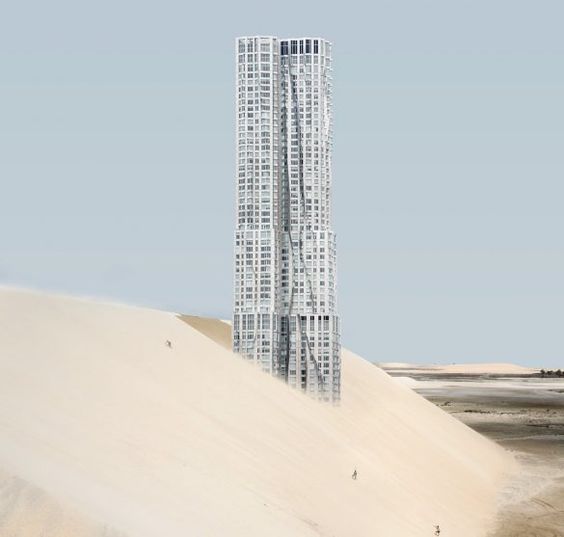Ever imagined what it would be like if the popular New York landmarks were located in a non-urban desolate area, away from the hustle and bustle of the busy NYC streets? In his photographic series, Anton Reponnen, has cleverly relocated these New York landmarks out of their urban context.
The New York-based interactive designer used these photographs to explore how the urban fabric drastically changes our perception of buildings. Accordingly, he relocated 11 famous New York landmarks, including the Empire State Building and the Met Breuer, to deserted landscapes from around the world.
Other New York landmarks included in the series are the Solomon R. Guggenheim Museum, the Chrysler Building, the Lincoln Center, the UN Building, the Standard Hotel in Meatpacking, and the Cooper Union Building.
Additionally, each one of the photos in the series is accompanied by interesting stories written by Jon Earle, an audio producer. The artist calls these stories “Flights of fancy”, which add an intriguing dimension to the photographs.
The “Misplaced” photography series is not just an interesting digital photo collage, it is an art project that makes familiar buildings seem unfamiliar, making us rethink the impact of urban context on architectural forms. Some of these renowned buildings appear as gigantic spaceships when placed in Middle-Eastern contexts. Seen in a completely different context, their forms appear more dominant and emphasized.
As officially stated on the Misplaced website, “Concrete behemoths and steel-and-glass towers rise from sand dunes and rocky cliffs, inviting viewers to see them as if for the first time. Out of context, architectural forms become more pronounced and easily understood.”
Related articles:
Rediscovering The Beauty of Moshe Safdie’s Habitat 67
Watch 7 Ancient Sites Magically Get Restored Right In front of You
The Colorful Side of Istanbul Through The Lens of Yene Torun
Walled City: Andy Yeung





